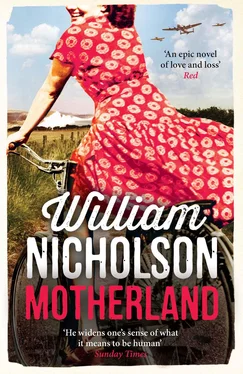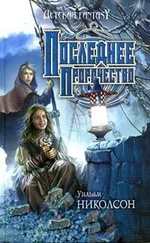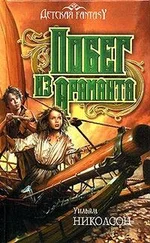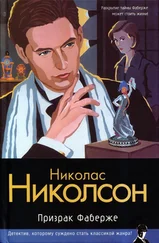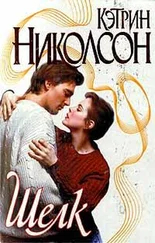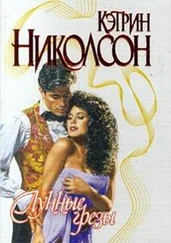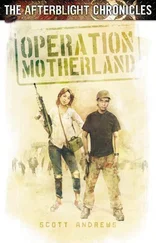* * *
Driving away from Montgaillard, tracing his route back through Treilles and Narbonne and so on to Carcassonne, Ed laughs at himself for his partial surrender. There was a moment in which he almost thought he had stumbled on a truth that could set him free. And what does it turn out to be? Some warmed-up version of a long-dead heresy.
In Carcassonne he visits a library and finds a book about the Cathars. He learns that they were willing to die for their faith in their thousands. At the siege of Béziers their attacker, Simon de Montfort, mutilated a column of prisoners, sent them back into the town with their eyes gouged out, their lips and noses cut off, led by a one-eyed man, to frighten them into surrender. They all chose to die. At its height whole congregations converted en masse to the heresy, whole chapters of cathedrals, so compelling was the Cathar teaching. All Languedoc was infected, the highest born, the best educated, the most intelligent leading the way. It took the pope and the mercenary armies of northern France twenty-one years to crush the heretics. They never recanted. They had to be killed, by hanging or burning at the stake. Whatever else you might say of them, the bons hommes were brave and sincere.
Of course, he thinks; and laughs at the simplicity of it. Why should they fear death? Through death they found freedom.
35
Larry sails from Avonmouth on the company’s newest purpose-built ship, the TSS Golfito . In the course of the two-week crossing he questions the captain on all aspects of the business, in particular the issue of how much cargo they carry on the westbound run. Larry finds it hard to believe the hold space can’t be more valuably used.
‘Everyone thinks that,’ says the captain, ‘but once you start running about here, there and everywhere, picking up a little of this and little of that, you’ve ended up paying out more than you’re getting in. We carry bulk bananas. That’s what our ships are built for.’
The Golfito has cabins for ninety-four passengers, sandwiched in the middle of the ship, between the giant refrigerated holds. It will make the return voyage with 1,750 tons of bananas.
One of the passengers, a colonial civil servant called Jenkins, takes it upon himself to dispel any illusions that Larry might have about the Jamaicans.
‘Delightful people,’ he says, ‘friendly, happy, excellent company and all that. Just don’t ever ask them to hurry up. They won’t hurry up. I’m not saying they’re slow-witted. Not at all. They’re more what you might call easy. They like to take life easy.’
‘But we don’t. We take life hard.’
‘That’s one way of looking at it. We work hard. We get things done. We build railways, and shipping lines. So we end up in charge. But I’ll tell you one thing, Cornford. If I’d grown up in Jamaica I’d be all for taking life easy. It’s a very pleasant climate most of the time. I’m a subscriber to the climate theory of empire. Cold weather makes you active. So it’s the nippy northerners who end up ruling the sleepy southerners.’
‘Not in India any more.’
‘True, but look what happens as soon as we leave. They all start massacring each other.’
‘You don’t think that’s something to do with us?’
‘How could it be?’ says Jenkins, to whom this thought has obviously never occurred. ‘They lived together happily enough under our rule for two hundred years.’
Larry decides not to tell Jenkins that he was in India at the time of partition. He still hasn’t worked out in his own mind what he thinks about what happened.
‘The killing of Gandhi,’ he says. ‘I was shocked by that.’
‘That fellow lived in cloud-cuckoo-land,’ says Jenkins. ‘Did you know he drank his own urine? Mind you, it’s coming here too. God alone knows how the place will run without us.’
By the end of the crossing Larry has had the opportunity to speak to many of the other passengers. They all tell him the same thing.
‘You should have seen Jamaica before the war. It was a paradise. All over now, of course.’
When he tries to discover why, he learns that it’s not just a matter of the damage the war years have done to the island’s economy.
‘The people aren’t the same any more. What with the trade unions and the strikes, and Bustamante and Manley working them up to feel aggrieved about everything. The sugar strike in ’38, that was the day old Jamaica died.’
They’re all on deck as the ship sails round Port Royal and into Kingston harbour. The air is heavy and warm. The Fyffes manager, Cecil Owen, is waiting at the quayside. He’s a red-faced comfortably built man in his fifties, who seems to know everyone he passes. He greets Larry with great warmth.
‘Knew you as soon as I set eyes on you,’ he says. ‘Just like your dad, only with hair. How was the crossing?’
‘Excellent. Very smooth.’
‘She’s a beauty, isn’t she?’
He runs his eyes with satisfaction over the handsome new ship, then turns back to Larry.
‘You’ll stay with me, of course.’
‘I don’t want to cause you any trouble.’
‘No trouble. I’m a bachelor. Glad of the company. Watch out, here it comes!’
A sudden downpour sends everyone on the dockside scurrying for cover. The warm rain dances on the paving stones, and the air fills with a rich sweet smell. Black dockworkers, careless of the rain, get on with unloading the passengers’ trunks from the newly arrived ship. Cars roll by, splashing in the sudden puddles, rain overwhelming their windscreen wipers. Cecil and Larry stand under the cover of the long customs shed, waiting for the cloudburst to pass.
‘Should be a driver somewhere,’ says Cecil. ‘He’ll have seen the ship coming. He’ll find us.’
That evening Larry finds himself sitting with Cecil on the wide porch of his house, drinking rum and fresh lime juice, gazing out over the dark blue waters of Hunt’s Bay. The afternoon rain has left the roofs of the town below sparkling in the evening sunlight.
‘They told me on the ship that Jamaica was a paradise once,’ Larry says, ‘but now it’s all over.’
‘All over, is it?’ says Cecil. ‘Who told you that?’
‘A fellow called Jenkins. He thinks the people here aren’t up to running things.’
‘Johnny Jenkins? He’s an idiot. I’ve lived here for thirty years and I love the place, but you have to look at it from their point of view. We bring them over from Africa as slaves. Then we set them free and tell them we’re the mother country and they’re our children, and they’re to be grateful to us. Then we make a lot of money getting them to grow bananas for us. Then we get ourselves into a war and tell them we don’t want their bananas after all. After all that, you’d want to run your own show, wouldn’t you? But the difficulty is, if you spend three hundred years telling people they’re children, they become afraid to go out alone. They need us, and they don’t want to need us. So you see,’ he concludes with a chuckle, ‘what we’ve ended up with is an island full of angry children.’
Larry thinks of India, and the complicated mix of admiration and resentment he found there.
‘Does everyone think the way you do, Cecil?’
‘Good God, no! By everyone you mean the white men, of course.’
‘Yes, I suppose I do.’
‘No, no. Your average planter here thinks the Jamaicans are idle, ungrateful, and incapable of taking a piss without someone to unbutton their trousers. Happy children of nature and all that balls.’
‘Children again.’
‘There’s the British Empire for you. Make the darkies work for you for nothing, then tell them you’re all one big family.’
Читать дальше
